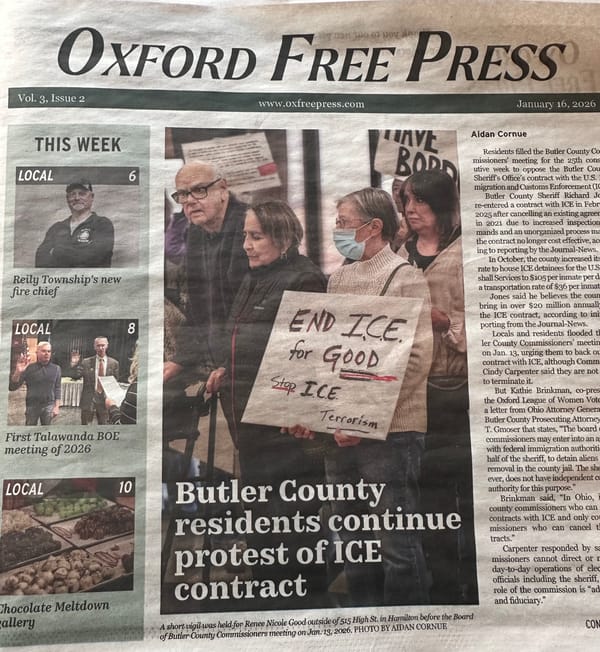Welcome
One thing that has amused me in the last few weeks as I observed the second Trump administration was how useful my discipline and its concepts have been.
I am surprised to find myself here, typing this newsletter. I've always been on the fringes of my discipline. As a graduate student I said to my advisor, "None of my questions are political science." He was unimpressed with my whining and offered, "Well, if you're a political scientist, and it's your question, isn't it political science?"
We were both right. There are certain conventions, certain standard methodologies, that define my field. But then there are many political scientists asking a more diverse range of questions, answering them however they can. I fit into that latter camp.
One thing that has amused me in the last few weeks as I observed the second Trump administration was how useful my discipline and its concepts have been. I guess that reveals an embarrassing assumption I have been harboring, that our concepts and internal debates are somehow removed from political life. But recent events have demonstrated otherwise; a working knowledge of the basic concepts of political science can help you to understand what otherwise appear to be disorganized chaos.
I started this newsletter to explain some of these concepts to interested readers, so that people have an alternative way to understand current events. I've been jumping from podcast to podcast, dissatisfied with an embrace of the politics of outrage over analysis of the implications of policy changes. For perhaps the first time in my life, I find myself wanting more political science. Maybe you do, too.
Concepts
Before we jump into any specific concepts, it might be helpful to say a few words about what a concept is. A concept is a container that helps to classify information. It is an abstraction or label that facilitates comparison. It is useful in situations where you might get too caught up in the details, and not realize the larger topic to which a specific situation is connected. A concept helps you to make that connection, and hopefully to leverage comparison to better understand the phenomena of interest.
I work in the field of Comparative Politics, where we use the methodology of comparison to better understand a specific country or "case." Some aspects come into better focus only when they are compared to another country. So, for example, I frequently find myself thinking about the Italian colonial experiment in Libya, where the Ottoman bureaucracy was dismantled, as we watch the Trump administration dismantle our state. It is this idea of "the state" that helps me to identify similarities between early twentieth-century North Africa and our present circumstances. Without the concept, there appears to be literally nothing in common between the two "cases." But with this concept I can start to get a taste for how consequential it is to eliminate a class of bureaucrats who know how to run the state by looking at another case where this has been done.
We will come back to Libya in a future post. In these first few posts I will be exploring some concepts that we use in the study of politics - concepts such as state, bureaucracy, autonomy, and capacity - and how they can help us to make sense of recent actions taken by the Trump administration. My hope is to illustrate how consequential current actions being taken are for the future of our country. As far as I am aware, there is no example of state breakdown that does not end in economic collapse and widespread human suffering. Unless we see a dramatic change, that is where we are headed. And that's why the first concept we will look at is The State.

